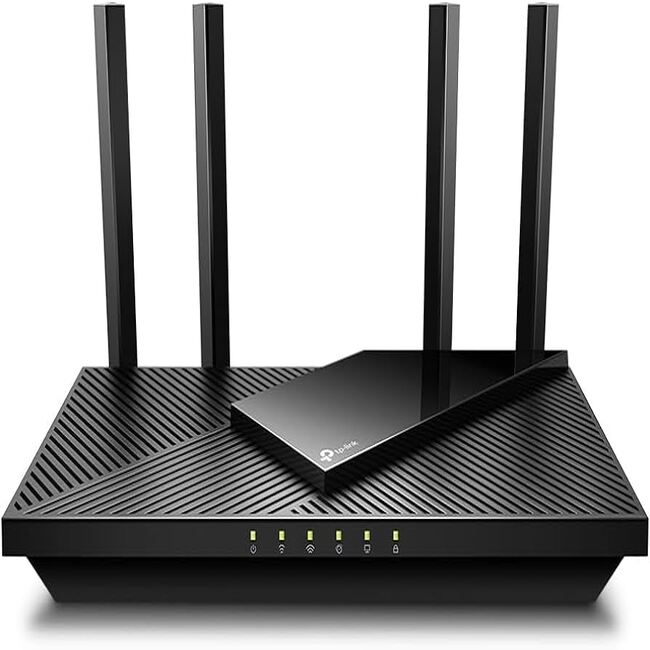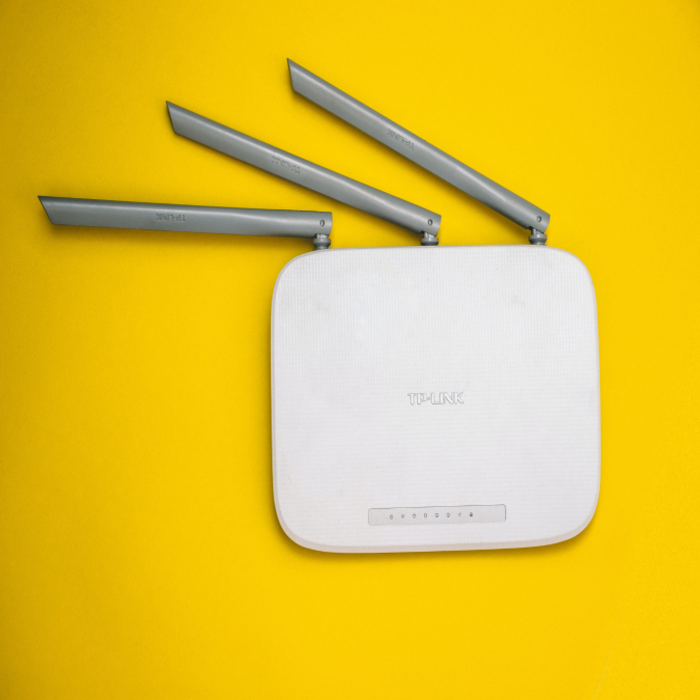The world of internet connectivity often leaves many users puzzled. With various devices involved, understanding their functions is essential. Two devices, the modem and router, frequently lead to confusion. Each plays a crucial role in delivering internet to your home or office. By grasping these distinctions, you can make informed decisions about your internet setup.
In essence, a modem is the first piece of hardware that connects you to the internet. It translates digital signals from your internet service provider (ISP) into a format your devices can understand. These signals usually come through coaxial cables, DSL, or fiber optics. On the other hand, a router works to share this internet connection between multiple devices. It creates a local network, allowing all devices to communicate with each other and share the internet connection. By understanding how these devices function, you can optimize your online experience.
Both the modem and router can exist as separate devices or be combined into one unit. Separate devices often provide better performance and flexibility. However, the convenience of a combined unit appeals to many users. This combination can save space and reduce wiring clutter. If you are setting up a new home network, knowing your options is crucial.

The Role of the Modem
How Modems Function
A modem’s primary role is to connect your home to the internet. It does this by converting analog signals from your ISP into digital data. This process allows digital devices to send and receive information. For instance, without a modem, your internet-enabled devices would not be able to access online content. Essentially, your modem acts as a bridge between your home network and the vast internet. As a result, it is foundational to your internet connection.
Modems can connect using different technologies. For example, cable modems typically use coaxial cables, while DSL modems utilize telephone lines. Furthermore, fiber optic modems offer faster speeds but might not be as available in all areas. Each type has its quirks and benefits. Therefore, understanding the type of service offered by your ISP is crucial. This knowledge enables you to choose the appropriate modem for your needs. In the end, selecting the right modem can significantly enhance your internet experience.
Types of Modems
When discussing modems, it is essential to consider their various types. Each type serves different use cases, catering to specific internet needs. Cable modems are popular among users due to their high speeds and reliability. They are typically used in homes with cable internet services. However, if you depend on DSL, a DSL modem is more suitable. These devices are common in areas lacking cable infrastructure. Fiber optic modems are also on the rise. They provide unparalleled speed and efficiency.
Additionally, some modems come with built-in routing capabilities. However, their performance may not match dedicated routers. As a result, many seasoned users prefer investing in separate devices. Each type of modem will be more effective based on your internet plan and requirements. Therefore, researching your options and how they align with your usage is vital.
The Function of the Router
How Routers Operate
A router’s primary job is to distribute a single internet connection across multiple devices. It connects to the modem and shares that connection wirelessly or through Ethernet cables. By doing this, a router allows multiple devices to access the internet simultaneously. This functionality is vital in households or offices with numerous users. Moreover, routers often come equipped with advanced features like firewalls and security settings. These features protect your devices from unwanted intrusions.
Routers also perform a unique task known as Network Address Translation (NAT). This process allows multiple devices to connect to the internet using one public IP address. NAT ensures that data packets from various devices can be differentiated and routed correctly. Essentially, this means that your devices can communicate seamlessly over the network. Without a router, every device would require its own unique IP address. This setup would be impractical and inefficient.
Types of Routers
Various types of routers exist to cater to different networking needs. For instance, basic routers are designed for residential use. They are sufficient for light browsing and streaming. However, if you need more robust features, consider investing in a dual-band or even a tri-band router. These devices can handle numerous connections with less lag.
Moreover, some routers come equipped with advanced technology, such as MU-MIMO. This feature allows multiple devices to receive data simultaneously without slowdowns. Additionally, mesh networking systems are gaining popularity. These systems consist of multiple nodes working together to provide wide coverage. Each type of router serves specific functions tailored to various internet needs. Understanding your household’s or office’s requirements is crucial to selecting the right router.

Combined Modem-Router Devices
Benefits of All-in-One Devices
With the rise in technology, combined modem-router devices have gained popularity. These all-in-one units simplify the networking setup. They save space by eliminating the need for separate devices. Additionally, they reduce the mess of tangled cables, making your environment neater. The convenience of having one device to manage can be appealing to many users.
Moreover, installation can be less complicated. Most combined modem-router devices come pre-configured for plug-and-play functionality. Users can connect easily without extensive networking knowledge. However, despite these benefits, combined devices may not always perform at their best. Users looking for optimal performance may find separate devices more effective.
Limitations of All-in-One Devices
While integrated devices are convenient, they come with drawbacks. Combined modem-router devices often lack the advanced features available in dedicated routers. For example, if you need detailed security settings or heightened performance, a separate router may be beneficial. Moreover, many ISPs often provide limited compatibility with their devices. Thus, you might sacrifice some control over your internet setup.
Additionally, if one component fails in an all-in-one device, both functionalities are impacted. If your modem fails, your entire internet connection goes down. Conversely, if the router has issues, you may lose connectivity to all devices. In contrast, separate devices allow for continued internet access if one fails. Consequently, weighing the pros and cons is vital when making a decision. This consideration ensures you choose the best option tailored to your specific needs.
The Impact on Connectivity
Speed Considerations
When it comes to internet speed, the type of modem and router you choose matters profoundly. A powerful modem can impact your connection speed, especially if you are on a high-speed plan. Therefore, choosing a modem compatible with your internet speed is crucial for maximizing performance. Similarly, the router’s capabilities also influence speed and reliability. Advanced routers can ensure that high-speed internet is efficiently distributed among devices.
Network congestion can occur if your router cannot support the number of connected devices. Additionally, routers with outdated technology will struggle under heavy loads. Therefore, investing in a modern router that matches your internet plan is essential. This investment can significantly enhance your overall streaming, gaming, or browsing experience. Hence, do not underestimate the impact of these devices on your daily internet use.
Coverage and Range
Understanding how the modem and router work together can enhance your connectivity experience. A modem alone will connect your home to the internet, while a router spreads that connection. However, factors like the home layout can impact coverage. For example, thick walls can hinder wireless signals. Therefore, it is essential to consider the placement of your router in relation to connected devices.
Furthermore, some routers are engineered for extensive coverage and robust performance. If your space is extensive, you may want to explore mesh network systems. These systems use several devices to blanket large areas with a consistent signal. This approach eliminates dead zones and ensures uninterrupted connectivity. Ultimately, assessing your space and how you use the internet can lead to better choices regarding equipment.
Making an Informed Decision
Assessing Your Needs
Before purchasing a modem or router, it is important to evaluate your needs. Start by understanding your usage patterns. Do you stream videos, play games, or have multiple users connected? Each condition requires different types of devices. Moreover, higher bandwidth demands necessitate more powerful hardware. Therefore, knowing your household or office dynamics is crucial in making informed decisions.
Also, consult your ISP about the internet plan offered. Not all modems support all internet speeds. Thus, ensuring that your hardware aligns with what your ISP provides is essential. Additionally, consider the number of devices you will connect to the network. Devices such as smart TVs, game consoles, and computers require a reliable connection. Ultimately, being clear about your needs will guide you in finding the right modem and router.
Future-Proofing Your Setup
Investing in technology comes with the need to consider the future. As internet speeds increase and more devices enter homes, you should future-proof your setup. Choose devices that are not only suitable for current needs but can also adapt to changes. For instance, opting for a modem that supports higher speeds may save you from needing an upgrade shortly.
Similarly, when selecting a router, consider one with advanced technologies. Features such as dual-band capability and gigabit speeds make a difference as more devices become connected. By ensuring your setup can handle modern demands, you can avoid costly upgrades later. A little research today can lead to a more efficient network tomorrow.

Understanding Compatibility and Support
ISP Compatibility
When choosing a modem or router, it is critical to check for ISP compatibility. Not all devices work seamlessly with every internet service provider. ISPs often have specific models they recommend for optimal performance. Choosing an incompatible device can lead to performance issues or connection drops. Therefore, prior research is vital.
Be sure to visit your ISP’s website, where they often list compatible models. Additionally, user reviews can provide insights into real-world performance. This information can aid your purchasing decision, ensuring that you avoid potential challenges.
Customer Support
Lastly, consider the customer support offered by the manufacturer. Customer support can vary notably between brands. While browsing for devices, look for companies that provide reliable customer service. This support can be essential if you encounter technical issues or need to troubleshoot. A strong customer support team can lead to easier resolutions.
Moreover, companies that frequently update firmware show a commitment to improving user experience. Staying updated with the latest software can protect your network from vulnerabilities. Therefore, think about this aspect when selecting both a modem and a router. Making informed choices leads to a more pleasant and secure internet experience.
In conclusion, understanding the differences between modems and routers significantly impacts your internet experience. Each device serves a purpose, but together they create a seamless connectivity environment. Take the time to select the hardware that best meets your needs and budget. By doing so, you can ensure smooth and reliable internet access for all your digital activities.

Leave a Reply